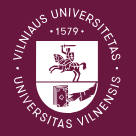Introduction
Siauliai University is located in Siauliai, Lithuania. It is the scientific and cultural center of northern Lithuania. It provides high-quality education for students and actively carries out international cooperation to promote the exchange of knowledge and culture.
Overview
Number of students: The specific number of students is not clear, but as a comprehensive university, the student scale should be considerable.
Number of faculty and staff: No exact data has been found yet, but judging from its subject settings and teaching scale, the number of faculty and staff should be able to meet the needs of teaching and scientific research.
History and Establishment
The school was established as a two-year teacher training college in 1948, reorganized into Siauliai Teacher Training College in 1954, established Kaunas University of Technology Siauliai Branch in 1959, became Kaunas University of Technology Siauliai Institute of Technology in 1990, and finally merged Siauliai Teacher Training College and Kaunas University of Technology Siauliai Institute of Technology in 1997 to form Siauliai University.
School Strength
Faculty: It has a team of experienced and professional teachers with rich experience in teaching and scientific research, and can provide students with high-quality education and guidance.
Teaching Resources: The school is equipped with modern teaching facilities and laboratories, such as libraries, computer rooms, engineering laboratories, etc., to meet the learning and practical needs of students.
International Exchange: Actively carry out international cooperation, establish cooperative relations with universities and institutions in many countries, and provide students with abundant international exchange and internship opportunities, such as student exchange programs, joint research, etc.
Institutional Nature
Public University.
Educational Philosophy
Focus on cultivating students' innovation and practical ability, emphasizing the combination of theory and practice, so that students can better adapt to the needs of society and the workplace, and also focus on cultivating students' international vision and cross-cultural communication ability to improve students' comprehensive quality and competitiveness.
Key Laboratories and Disciplines
Key Laboratories: Although there is no explicit mention of national key laboratories, the school has professional laboratories in some subject areas, such as engineering laboratories, computer laboratories, etc., which provide support for teaching and scientific research in related disciplines.
Key disciplines: covering multiple fields such as education, engineering, natural sciences, humanities and social sciences. Among them, engineering, education and other disciplines have achieved certain results in teaching and scientific research, and have high teaching level and scientific research strength.
Department
The school has multiple departments, including the Department of Teacher Education, the Department of Science and Engineering, the Department of Humanities and Social Sciences, etc. Each department has multiple majors, providing students with a wide range of learning options.
Ranking
The specific international ranking of the school has not been found, but it is a comprehensive university with a certain influence in Lithuania.
Expenses
Tuition fees: Tuition fees for different majors are different. Undergraduate tuition fees are generally around 2000-3000 euros/year, and master's tuition fees are around 3000-4000 euros/year.
Accommodation fees: The school provides dormitories, and the cost is about 150-250 euros/month.
Living expenses: The monthly living expenses are about 300-500 Euros, including food, transportation, entertainment and other expenses.
Campus
Campus facilities: The campus environment is beautiful, with modern teaching buildings, libraries, student dormitories, sports facilities, etc., providing students with a good learning and living environment.
Campus culture: The school pays attention to campus cultural construction and carries out a variety of campus cultural activities, such as academic lectures, cultural festivals, sports competitions, etc., which enrich students' extracurricular life and promote students' all-round development.
-
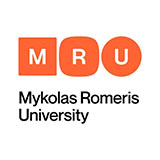
Mykolas Romeris University
-

LCC International University
-
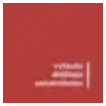
Vytautas Magnus University
-

ISM University of Management and Economics
-
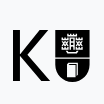
Klaipeda University
-
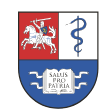
Lithuanian University of Health Sciences
-
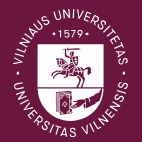
Vilnius University
-

Vilnius Gediminas Technical University
-

SMK College of Applied Sciences
-
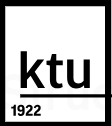
Kaunas University of Technology
-

Mesoamerican University
-

Istmo University
-

Mariano Galvez University of Guatemala
-

Regional University of Guatemala
-

Galileo University
-

Francisco Marroquín University
-

Rafael Landívar University
-

University of the Valley of Guatemala
-

University of San Carlos of Guatemala
-

Technological Institute of Tlaxcala Plateau
-

Golfo University
-

Technological University of South Sonora
-

Technological University of Huejotzingo
-

Tizimín Institute of Technology
-

Chilpancingo Institute of Technology

